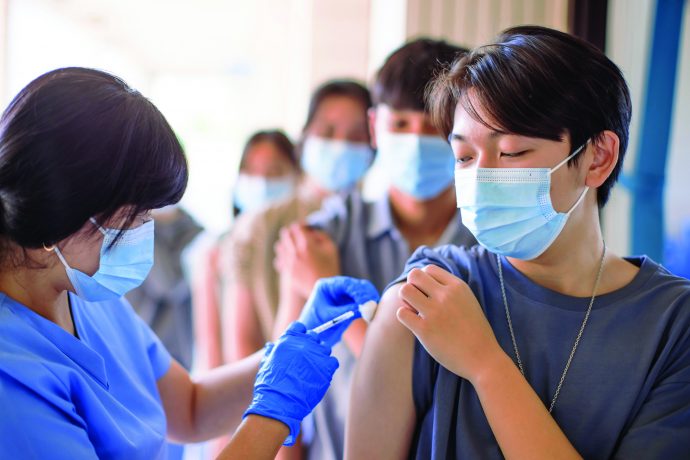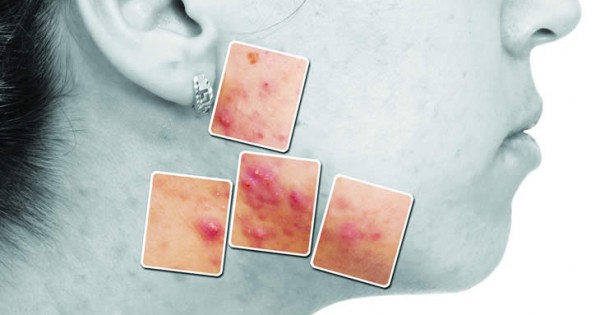Vaccination programmes are established to protect children against many different diseases. Often overlooked, these programmes include vaccinations for teenagers. It is important for parents to understand why teenagers should get vaccinated, what vaccinations they should receive, and the importance of vaccinations.
Why should we vaccinate teenagers?
- Reduce risk of serious infection – Generally, infants and the elderly are known to be vulnerable to serious infections. This does not mean that teenagers are completely safe. Teenagers should get vaccinated to reduce their risk of developing serious infections.
- Safe and effective – Vaccines are shown to be safe and effective to protect us against vaccine-preventable diseases (VPDs). Travelling to regions where certain VPDs are endemic can put teens at risk of infection. Vaccinations can help reduce this risk.
- Protect others – Being infected with a disease puts others at risk for being infected too. This is concerning if the infection passes to someone vulnerable to developing serious infections. Vaccinations not only help protect the individual, but also others around them.
- Protect future generations – Adhering to mandatory vaccinations over many years will eventually eradicate many diseases of today. The future generations may not need to worry about the VPDs we currently face.
- Teenagers are at risk – Teenagers, especially those planning to live in college dorms, are at a high risk of infection. Infections can easily spread in crowded dorms or enclosed areas where students often meet to socialise. Vaccinations can help reduce this risk.
Scheduled vaccines for teens in Malaysia
Human Papillomavirus (HPV) Vaccine – females only
HPV vaccines are included in the Malaysian National Immunisation Programme (NIP), and help prevent the development of cancers caused by the human papillomavirus, especially cancer of the cervix. This vaccine is scheduled for girls aged 13 years old. Two doses are given: the first dose at age 13, and the second dose six months following the first dose.
Tetanus Toxoid Booster (ATT)
The ATT vaccine is a booster shot included in the Malaysian NIP that helps to enhance immunity against tetanus. In total, six vaccine doses in the NIP are given against tetanus. Three primary doses are given at the age of 2, 3, and 5 months (as part of the hexavalent vaccine). Additionally, three booster doses are given at 18 months (hexavalent vaccine), and 7 (dT vaccine) and 15 years old (ATT vaccine). A new Tdap vaccine covering tetanus, diphtheria and whooping cough is also available for teens and adults.
Recommended vaccines for teens in Malaysia
Meningococcal Conjugate (MenACWY) Vaccine
The MenACWY vaccine provides protection again four types of meningococcal bacteria: A, C, W-135, and Y, which can cause meningococcal disease. It is recommended to travellers going to countries where meningococcal disease is endemic (e.g. sub-Saharan Africa), at least two-weeks prior to departure. The vaccine can be taken as early as six weeks of age. For children older than 12 months, as well as for teens and adults, only one dose is required.
Pneumococcal Conjugate Vaccine (PCV)
PCV provides protection against multiple strains of S. pneumoniae, which causes pneumococcal disease. As of December 2020, the pneumococcal vaccine has been implemented into the Malaysian NIP and is scheduled for infants. A single dose is also recommended for high-risk teens, elderlies above 65 years old and adults with comorbidities.
Influenza (Flu) Vaccine
The influenza vaccine provides protection against influenza viruses. It is recommended that everyone above the age of six months get vaccinated every year, especially those in high risk groups, as the virus changes constantly and rapidly.
Tetanus-Diphtheria-Pertussis Booster (Tdap)
The Tdap vaccine is known as a booster dose of the diphtheria-tetanus-pertussis (DTaP) vaccination mandated to children in the Malaysian NIP. This single-dose vaccine is recommended for teenagers and adults who have had 10 or more years elapsed since the completion of their last primary or booster dose. Parents can opt to give their teens Tdap instead of ATT to provide more protection.
Obesity, cardiovascular risk factors, and diabetes are on the rise in Malaysian teenagers. This increases the chance of teens developing comorbidities (having two or more diseases at the same time). Teenagers with comorbidities are at high risk of developing serious infections. Vaccinations can help reduce these risks, and aid in preventing the development of serious symptoms. For example, teenagers with comorbidities are vulnerable to serious infections of pneumococcal disease. This increases the risk of developing serious symptoms like pneumonia, meningitis, and septicaemia. Taking the pneumococcal conjugate vaccine (PCV) helps reduce these risks.
Prevention is always better than cure. Ensuring that your teenager receives the appropriate vaccinations at the right time is essential in protecting their long-term health.







Comments